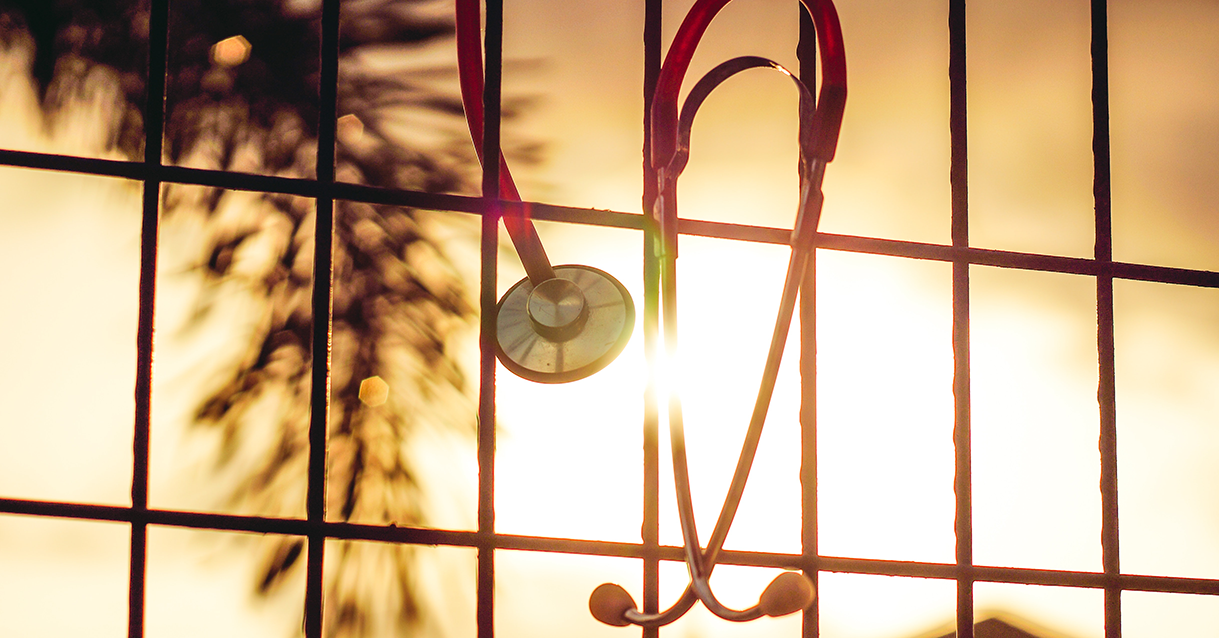Finding (or Rediscovering) Your Purpose in Medicine
- by
- Jun 23, 2022
- Reviewed by: Amy Rontal, MD

Somewhere along the way, it’s easy to forget exactly why you chose this profession. The call shifts, sleepless nights, and time sequestered away from your loved ones can become demoralizing. At some point, you might even start asking yourself, “What am I really doing here?”
During your medical school interviews, you expressed your sincere desire to help patients. You said that you would always put them first so you could make a difference in their lives. You may not have appreciated the harsh realities of actual medical practice, which might make you question your initial idealism.
Periodically, we all go through tough times
For months, while strapping on PAPRs, gowns, gloves, masks, and shields to go in a COVID intubation unit, I found myself focusing only partly on my patients and more on myself. I worried endlessly about my own safety and became paralyzed with fear that I might spread the disease to my family. When the COVID intubations went from frequent to incessant, my sense of self-preservation began to trump my desire to help patients I knew but fleetingly. When the unvaccinated crew presented themselves in the next wave, I felt scorn for their poor choice rather than empathy for their present condition. Was there anything left of the original altruism I had expected to devote to my practice when I started med school?
I am not proud of these thoughts, but I now realize they were my way of coping with cruel and at times unreal conditions rather than being objective and dispassionate reflections. In the 23rd hour of your shift, when weariness and fatigue start to cloud your judgment, your reason for practicing medicine can likewise become blurred. It’s important to take stock of yourself and to recharge your batteries when they run low.
During tough times, maintaining our ideals can be difficult
Those medical school interviews were peppered with a desire to “help people” by engaging in the “noblest profession.” We added buzzwords like “empathy,” “underserved,” and “humanism.” These words may be cliches, but they express important truths. Every one of us wants to apply decades worth of training and esoteric knowledge to help people during difficult moments.
Certain events, however, can make the human connection aspect of my job slip away. Weeks when I’m overworked are a principal contributor. When I fall behind in my caseload, I can become annoyed with vulnerable patients who try to share seemingly inconsequential feelings that are unrelated to their treatment. When I’m running 4 ORs, in charge of staffing, and holding the code pagers, I don’t think about finding meaning. My day becomes much more about staying afloat and keeping all the patients physically safe.
Mentors can help us remember our purpose and rebalance ourselves
During difficult days, I remind myself of my mentor, Dr. G. He would spend 10% of his pre-op conversation time with patients discussing their medical history and anesthesia plan, and 90% of his time getting to know them. Dr. G had been an anesthesiologist for 3 decades, had already seen it all, and was unfazed by the catastrophe. In fact, that word wasn’t even in his lexicon. He asked his patients what they did for work, what their family was like, and so much more. He understood their fears and made sure to reassure and support them. In between these conversations, I’d see him sitting on the window sill in a half-lotus position, smiling gently, watching the day go by. He showed me the human side of humanism, turning it from an ethereal idea into my reality.
When my residency was coming to an end, the anxiety of practicing on my own was starting to creep in. I asked the attendings I respected most, “What advice can you give me for when I become an attending?”
I received very different answers. They ranged from the banal “You’ll be fine, don’t worry about it!” to the harsh “Just don’t let anyone die too early on; it will happen, but don’t let it happen in your first month.”
Dr. G, on the contrary, had some wise words for me: “There will come a time,” he began, “when you are knee-deep in the muck, pre-ops building up, spinals failing, patients hypotensive in the PACU, residents clueless about what to do, and you are getting pulled in 6 directions. It will be tough, and it will be taxing. Still, as you power walk from the difficult airway in OR 1 to the sick heart in OR 12, find a way to pause for a brief moment to give yourself a reminder as to why you are here. ‘This is my job. They need me. I’m here to handle this difficulty. I can and will do this.’ Find joy and pride among the chaos, and you can turn craziness into satisfaction.”
His words stick with me to this day. This skill of reframing tough situations has proven invaluable. When I can squeeze a conscious “I am working hard, and that’s why I showed up today” thought in, the effect this mental motto has on me is so remarkably different from “Come on…this sucks, why me?”
We grow up as doctors and as individuals. We rediscover our reasons for showing up for tough, yet rewarding work each day. I know: it’s not for the paycheck or for the break room chatter. I’m here to perform at the upper echelons of my ability and to be the doctor that my patients are hoping for, the one who will take care of them and will care for them.
Photo by Oluwaseyi Johnson on Unsplash









